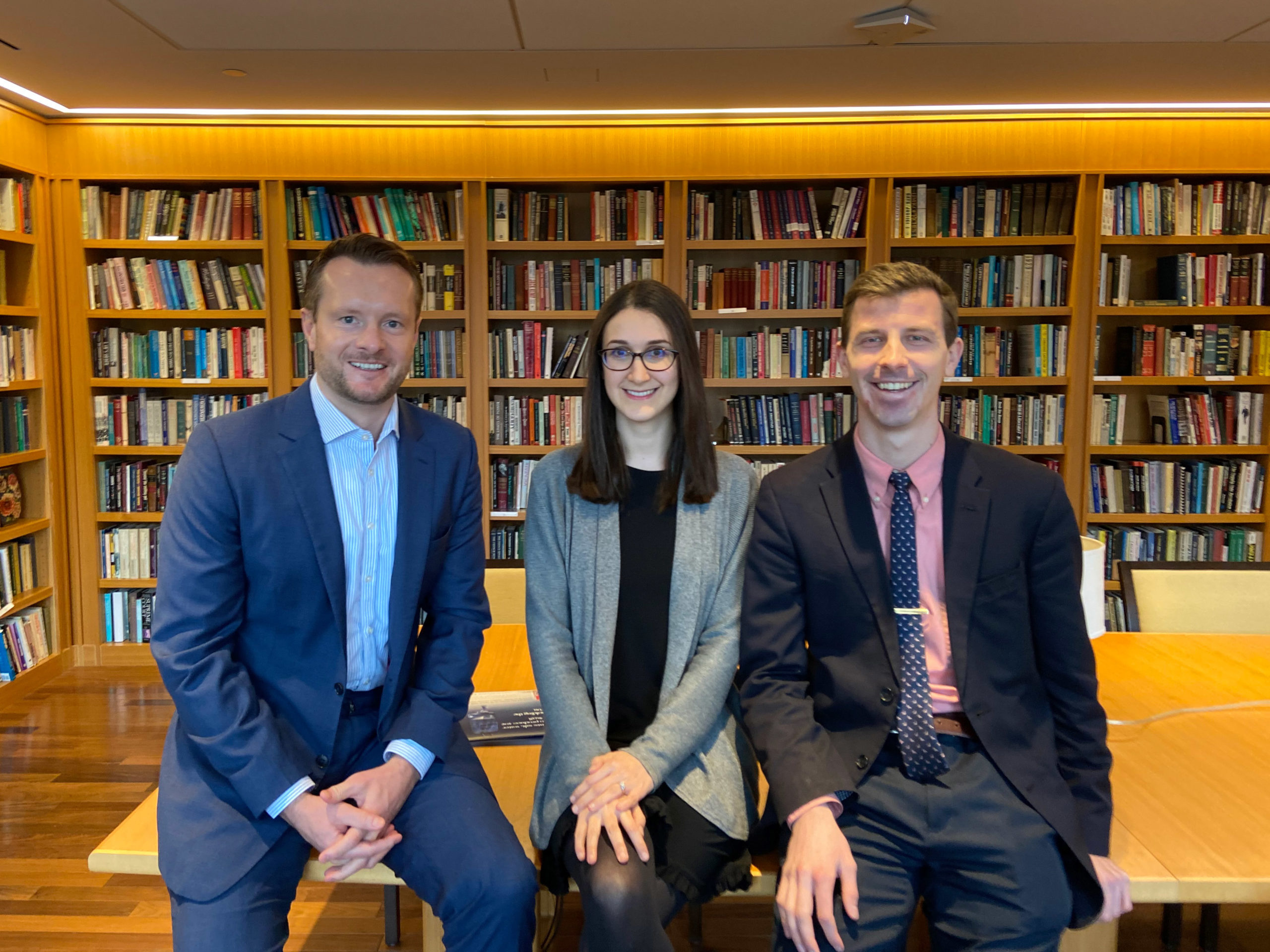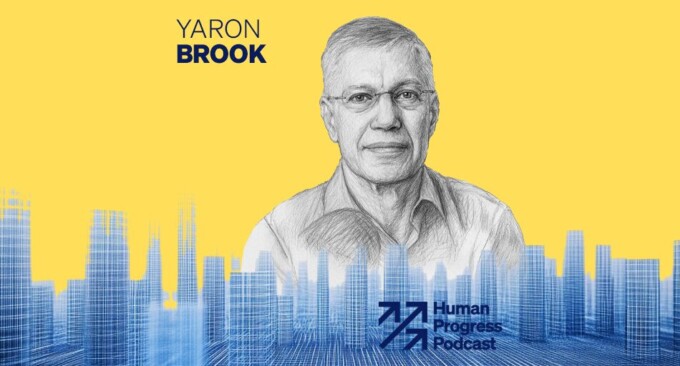Dear friends,
The year 2019 is over and so is a decade that, depending on whom you listen to, was either appallingly bad or spiffingly good. Living in the present may be a sure sign of sanity, but it has some drawbacks, the most important one of which is the lack of historical perspective. Yet, history is full of ironies.
The 20th century, for example, saw the Boer War, the Great War, the Armenian genocide, the Russian revolution, the Soviet Gulag and the Holodomor, World War II and the Holocaust, deployment of atomic weapons, the Korean and Vietnam wars, the (greatly misnamed) Great Leap Forward, the killing fields of Kampuchea, the bloody hills of Rwanda, and the Yugoslav Wars, etc. And yet, after all that slaughter and suffering, humanity entered the present century living longer and healthier lives; being better fed and more educated; and more equal as well as freer. As Kevin Kelly, founding executive editor of Wired magazine, wrote,
“Ever since the Enlightenment and the invention of Science, we’ve managed to create a tiny bit more than we’ve destroyed each year. But that few percent positive difference is compounded over decades in to what we might call civilization. . . [Progress] is a self-cloaking action seen only in retrospect.”
The “two steps forward, one step back” nature of progress provides the doomsayers with plenty of ammunition and that too has its uses, for there are plenty of areas of human well-being in need of further improvement. But a proper perspective is necessary. As Steven Pinker from Harvard University points out,
“Progress is not magic. Progress is not perfection. Progress is not a miracle. It doesn’t mean that everyone is maximally happy. It doesn’t mean that everything gets better for everyone everywhere all the time and always. And that would be a miracle. That’s not progress. The question is however bad things are now, were they worse in the past?”
The simple fact is that life used to be “nasty, brutish and short” for the vast majority of people who ever lived. The persistence of pessimism, I conjecture, is partly due to the fact that the “Age of Abundance” in which we live accounts for a measly 0.07 percent of the time that our species has walked the Earth. Alas, neither our educators nor our journalists take the long view, thereby perpetuating the myth of decline and even a coming apocalypse.
Anxiety is on the rise and that can mean only one thing – too few people visit Human Progress! As we show, the world has never had it so good. Over the last decade, life expectancy increased and infant mortality decreased, incomes are up and absolute poverty is down, and school attendance and literacy are higher than ever.
In fact, it is much easier to compile a list of negative trends than positive ones. Yet, a cottage industry of commentators from across the political spectrum in the United States has arisen to bemoan America’s supposed descent from greatness. I don’t buy it. Our country has faced plenty of challenges in the past, but as my favorite writer likes to say, “No one ever got rich betting against the United States or against the American people.”
Of course, not everything is going in the right direction. That would be a miracle. Chief among my concerns is not the political atmosphere (we were more divided in the 1860s), the state of race relations (remember the 1960s?) or income inequality (so long as the poor are getting richer, put me down as a “glass half full” kind of guy). I am, however, saddened by declining life expectancy driven by deaths of despair among less educated Americans in economically depressed areas.
Commentators from the left and right blame globalization, but the reality is (as ever) more complicated. Economic progress, including the unprecedented prosperity that most Americans currently enjoy, is caused by Schumpeterian creative destruction, which replaces old jobs or obsolete ways of doing things with new ones. If concerns over economic displacement dominated our thinking in the past, we would never have replaced horse-drawn carriages with cars and washerwomen with washing machines.
Does that mean that our fellow citizens deserve no pity or ameliorative action? Far from it! Americans are a generous people and charities have an important role to play in alleviating the suffering of the least fortunate. Moreover, our licensing and business regulations are out of control, making it unnecessarily difficult for some of our least fortunate brethren to change careers or start and operate small businesses. Finally, NIMBYism and the lack of construction permits keep low-cost housing from being built. That prevents our fellow citizens from moving from economically depressed to economically booming areas. Is it any wonder that annual inter-state mobility among Americans has fallen from about 20 percent to 10 percent since the end of WWII?
Tackling the overweening bureaucracy and vested interests takes courage and hard work – tough commodities to come by in Washington, D.C. It is much easier to blame the market. And yet, thanks to that very market, we have gone from the misery and monotony of agricultural existence (see here, here and here) to the luxury and sophistication of the modern age in less than three centuries.
One of my favorite projects over the past year was to calculate the cost of food in America between 1919 and 2019. The inestimable HP Board Member Gale Pooley and I found that food prices for unskilled workers fell by 79 percent, which means that for the same length of work that allowed an unskilled worker to purchase one basket of 42 food items in 1919, he or she could buy 7.6 baskets in 2019. Similarly, blue-collar workers saw food prices decline by 87 percent, which means that for the same length of work that allowed a blue-collar worker to purchase one basket of 42 food items in 1919, he or she could buy 11.73 baskets in 2019.
Finally, your favorite website had a good year. We registered nearly 700,000 unique visitors, nearly 1.2 million visits and over 1.7 million distinct page views. Our most-viewed articles included Matt Ridley’s Rejoice, the Earth Is Becoming Greener, and my Pollution in Pre-Industrial Europe and Rural Life in the Past Was a Battle for Survival. Our Twitter following rose by over 22,000 people and we end the year close to 111,000 followers. Likewise, our Facebook fan club grew from 42,892 to 47,490. We also added 244 new datasets.
Following the success of the #HeroesOfProgress series, which received praise from Bill Gates at the start of the year, we introduced the #StuffOfProgress series. Since January of 2019, our data and articles have been cited or published by The Washington Post, The Financial Times, Wired, The National Review, The National Interest, Reason, The Hill, The Washington Examiner, Yahoo! News, The Federalist, Areo Magazine, Quillette, Newsday, The American Spectator, Reason, Fox Business, Townhall, The Orange County Register, CapX, RealClearMarkets and other outlets.
We also launched a new section of the website, called the Simon Project. The Simon Project draws attention to humanity’s growing resource abundance, and was featured in a column by George Will in The Washington Post. (Another WaPo column devoted to our work can be found here.)
HumanProgress.org was well received at Cato’s Sphere Summit, where the website was introduced to teachers from across the country as a classroom resource. The website was also presented to Capitol Hill staffers as part of Cato University. We also held numerous events including The Simon Abundance Index: A New Way to Measure Availability of Resources, The Search for Meaning in the Age of Abundance, Does Capitalism Help or Harm Women? A Debate and The Case for Space: How the Revolution in Spaceflight Opens Up a Future of Limitless Possibility.
Chelsea Follett was promoted to policy analyst and is continuing her anti-Malthusian jihad with an upcoming policy analysis provisionally titled Neo-Malthusianism and Coercive Population Control in China and India. David Behrens, a former Cato intern, joined our team as a research associate. Deo volente, my first book Ten Global Trends Every Smart Person Should Know – and Many Others You Will Find Interesting, which I co-authored with Ronald Bailey from Reason magazine, will come out in May. I am already busily scribbling away at my second book (co-authored with Gale Pooley) provisionally titled The Age of Superabundance.
Well, this “year in review” is getting awfully long and whilst I have much more to say, I shall leave additional thoughts for later. In the meantime, I hope that you join me in raising a glass of bubbly and giving two cheers to a “two steps forward, one step back” kind of year and, indeed, decade!
With thanks and best wishes for 2020,
Marian




